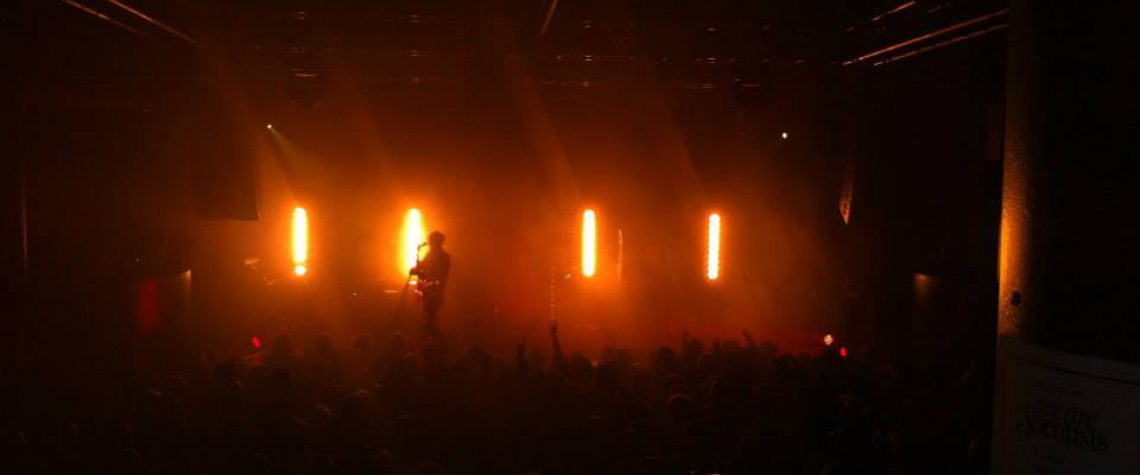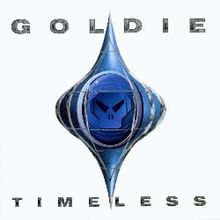Released 12th September 1995.
An upfront, bastard child of rave, Jungle had until 1993 remained firmly underground, it’s shredding bass and ragga fetishism proving highly addictive to a growing number of clubbers in South London but still too raw a mix to earn wider accessibility. It’s main conduits were still pirate radio and an endless stream of dub plates, but just as it began to look like any overground pretensions would be limited to near-novelty tracks like SL2’s On A Ragga Tip, the game changed.
Clifford Price (That’s Goldie to you and me) was one of the primary energies behind it’s metamorphosis and Timeless was his magnum opus, a work that acknowledged the more cerebral stance of the emerging “Artcore” scene but pulsed with enough jump up firepower still to energise crowds. To a few small-minded artisans it also stood as a betrayal of the movement’s fiercely-held revolutionary founding principles by selling it out in exchange for mass appeal, but the protagonists were mostly Luddite bystanders who had carved their own inescapably constricting niches. Goldie’s pedigree and frontline roots whilst growing up publicly in clubs like Rage guaranteed the respect to face down the accusers.
Taking most of the traditional elements of the Jungle abstract – wall wobbling sub bass and hyperspeed breaks – Goldie as chief architect chimed with co-conspirator Rob Playford to deftly add touches of soul and jazz to a myriad of super complex, snaking beats and disorienting changes of pitch. Timeless was a monstrous hybrid of a new beginning, one which also represented an alternative vision to the superclub banality of the legalised party scene, a promise epically realised from the first moments of the twenty-minute plus opening triptych Inner City Life.
Everywhere was the sound of new: Saint Angel a mind-blowing concoction of off-centre fx, possessed samples and pavement tough cut-ups, State of Mind worked the contrasts, rippling nu-soul, almost balladry after nearly half an hour of the fullest on Joe Public had been in years; What balls. On both Angel and Sensual vocalists D.Charlemagne and Justina Curtis were bewitching, emphasising the fluidity of the ruckus beneath them as the staccato noise pounded and ebbed, a vastly dynamic motion often pushing at the margins but never you sensed even close to being out of control. At the heart of Timeless‘ voracious need for originality was the capricious Sea of Tears, where each new phase felt like different horizon from which the progenitors augmented their trickery, harnessing interspersed spoken word sequences, a sample from a pinball machine and an airy jazz guitar motif.
A growing influence as a movement recognised almost posthumously with Roni Size’s Mercury prize, it’s Timeless nevertheless that remains the bar for drum n’ bass which every subsequent imitator fell at, a record that led the rest of its field by light years on release – and never looked back.


3 Comments
Comments are closed.